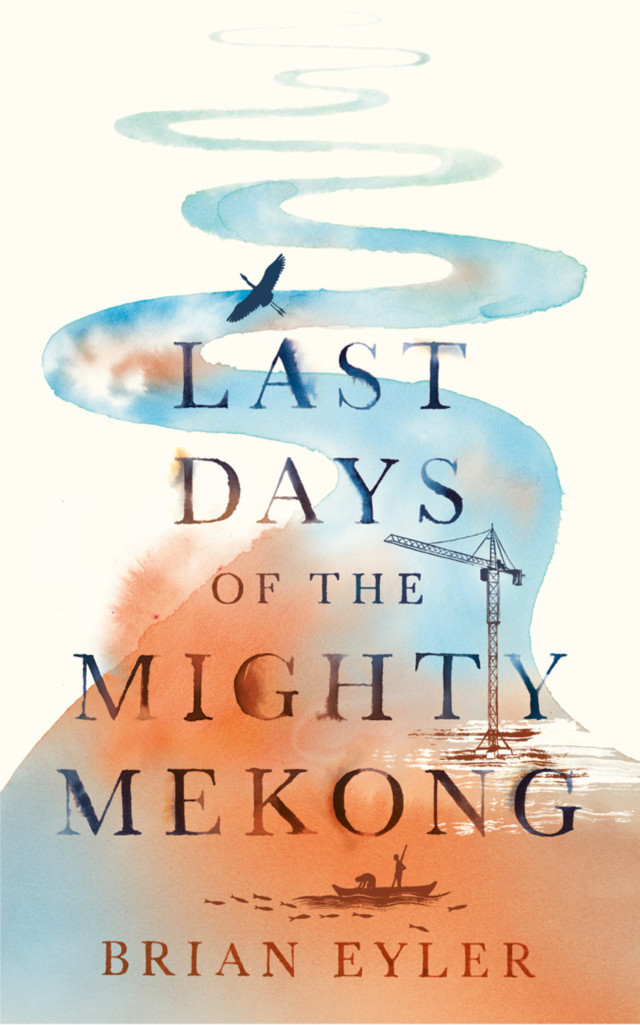The Mekong is the world’s 12th-longest river, second only to the Amazon in terms of biodiversity importance, and the world’s most productive inland fishery. It is also a transboundary river – rising from the glaciers of the Tibetan Plateau, in China, before tumbling down through Myanmar, Laos, Thailand and Cambodia and emptying into the South China Sea, in Vietnam. The Mekong is therefore a critical point of contestation, or cooperation, between the six states that share its resources. The stakes, and uncertainties, are only heightened by climate change: the roof of the world is warming far faster than average, with experts warning recently that two-thirds of Himalayan glaciers could disappear by the end of the century.
 Last Days of the Mighty Mekong, however, is not a policy report about these urgent challenges. Instead, Brian Eyler, the director of the Stimson Center's Southeast Asia Program in Washington, D.C., has penned an engaging and open-ended book, with a less elegiac tone than its title might imply. At many points a vividly reported travelogue, Eyler starts in the tiny Tibetan village of Yubeng, in Yunnan province, south-west China. Here, Eyler explores the changing fortunes of high-altitude life near the source of the Lancang, as the Upper Mekong is known in China. Over the past decade, the village transformed into a tourist destination for mountaineers and spiritually minded travellers. Tourists left piles of garbage along its once-pristine hiking trails. Some residents got rich renting rooms to out-of-towners, but lost their cultural traditions in the process.
Last Days of the Mighty Mekong, however, is not a policy report about these urgent challenges. Instead, Brian Eyler, the director of the Stimson Center's Southeast Asia Program in Washington, D.C., has penned an engaging and open-ended book, with a less elegiac tone than its title might imply. At many points a vividly reported travelogue, Eyler starts in the tiny Tibetan village of Yubeng, in Yunnan province, south-west China. Here, Eyler explores the changing fortunes of high-altitude life near the source of the Lancang, as the Upper Mekong is known in China. Over the past decade, the village transformed into a tourist destination for mountaineers and spiritually minded travellers. Tourists left piles of garbage along its once-pristine hiking trails. Some residents got rich renting rooms to out-of-towners, but lost their cultural traditions in the process.
As he heads downstream, Eyler visits the first of the large Mekong mainstream dams, learning how the Manwan Dam promised jobs and prosperity for remote communities when it opened in 1995, but instead impoverished many of the 3,400 people it displaced. Today, Manwan is one of ten mega-dams on the Upper Mekong, which created such a glut of electricity in the province that cryptocurrency miners are known to plug directly into the electricity provided by the dams for their power-intensive operations. Yet the dams, for all their capacity to generate electricity, have had negative effects on fisheries (the major source of dietary protein in the Lower Mekong Basin), river ecologies, and agricultural systems that depend on the sediment-filled flood pulse of the river.
Eyler combines close observations and voices of those who depend upon the river
This matters particularly downstream, where Laos – transformed enormously in recent years by Chinese investment into railways, rubber plantations and mining, as well as hydropower – still plans to build nearly 100 dams with a combined installed generation capacity of 28 gigawatts by 2020. The looming threats to local residents, as well as to the river ecology, are illustrated here, and throughout this compelling and expressively written book. Eyler combines close observations and voices of those who depend upon the river – from environmental activists in the Golden Triangle, to fisherfolk on the Tonle Sap Lake in Cambodia, and farmers in the heavily dredged delta in Vietnam.
One of the most distinguishing threads that runs through the book, however, is Eyler’s interest in “Zomia”. This geographical idea, popularised by the American scholar James Scott, refers to the upland areas of the Mekong region, and proposes them as proto-anarchist “zones of refuge for ethnic groups who have chosen to flee expanding lowland civilisations like the Chinese, Vietnamese, or Thai.” Eyler focuses particularly on the Akha. Despite being labelled among the most “backward” by Mao-era Chinese anthropologists, Eyler highlights their traditional promotion of “swidden agriculture” – a practice once disparagingly called “slash and burn”, but which is now recognised as a sustainable way to manage natural resources. And today, Eyler finds social media is helping the Akha to revive and preserve their modern-day Zomian culture.
This is one of the few hopeful signs: a symbol of grassroots innovation that could reshape the river’s future. Similarly, Eyler finishes his journey down the river by visiting a polyculture project in the Mekong delta, in Vietnam, where agricultural experimenters have created a stable, “closed-loop” ecological system producing fruit, fish, vegetables and sought-after edible snails without the use of pesticides, fertilisers and antibiotics.
Such examples matter more than ever. But with transboundary institutions weakened in recent years; regional economic integration characterised by the top-down rollout of infrastructure and special economic zones (SEZs); and civil society opposition ever more squeezed, it is difficult not to conclude that the river – as a mighty, unique ecology, and as home to a dazzling array of rebel cultures – is in its last days.









